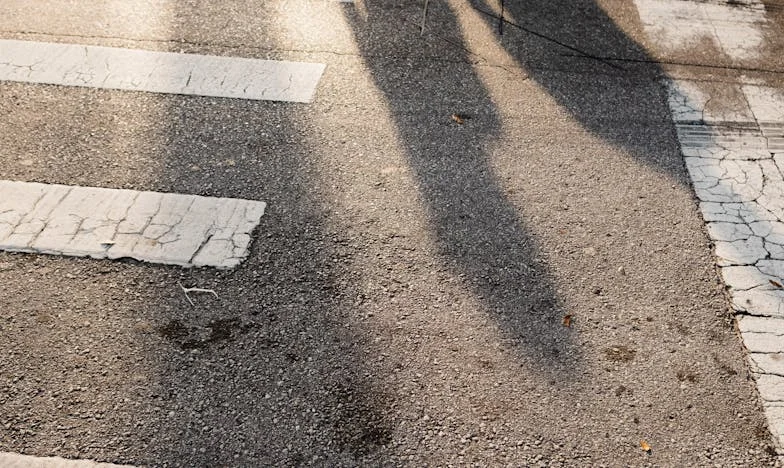The Weight of Unseen Achievements: A Mother’s Story
“Mom, you never did anything special. You’re just… here.”
The words slammed into me harder than the slamming of our front door the night my husband, David, left. I can still see my daughter, Emily, standing in the kitchen, arms folded, eyes cold. She was sixteen, so sure of herself, so blind to the invisible scaffolding holding up her world.
A week before, David packed his bags after another shouting match. I begged for one more try, but he said he was suffocating, that he needed to “find himself.” Our home had become a silent battleground, my hopes and dreams buried beneath grocery lists and permission slips. When he left, the air felt thinner. I tried to keep up appearances for Emily, but she’d retreat to her room, pretending not to notice the emptiness at the dinner table.
It was on a rainy Tuesday, while I was making meatloaf, that I overheard her on the phone. The walls in our house were thin, and so was my patience. “My dad’s a success,” she said, voice dripping with pride. “But my mom? She’s just a boring housewife. She never did anything with her life.”
I dropped the spoon. The sound startled her, and she looked at me, wide-eyed, but didn’t apologize. Instead, she stormed out, leaving me alone with my thoughts and the half-cooked meatloaf. I stood there for a long time, wondering if this was all I would be remembered for—stains on the counter, meals on the table, and a heart so heavy it could barely beat.
That night, I called my best friend, Maggie. “Kasia, you’re coming over,” she said, using the Americanized version of my name because she knew how much I wanted to fit in after moving from Poland years ago. “No arguments.”
I sat at her kitchen table, hands wrapped around a mug of chamomile tea, my tears falling unchecked. “I gave them everything, Maggie. I put my career on hold, I went to every parent-teacher conference, every soccer game. And now I’m invisible. Disposable.”
Maggie squeezed my hand. “You’re not invisible. You’re just not loud about your achievements. But that doesn’t mean they’re not real.”
The next day, I tried to confront Emily. I wanted her to understand, to see me as more than a background character in her life. But when I knocked on her door, she was on a video call with her friends, laughing and carefree. I hesitated, remembering the look of disdain she’d given me the night before.
Days passed, and my sense of worth unraveled further. I started doubting every choice I’d made: turning down a promotion to be home when Emily was sick, spending weekends volunteering at the school instead of pursuing my own hobbies. I even questioned whether staying home had made me less attractive to David, if maybe my sacrifices had been mistakes all along.
One evening, I found an old photo album in the attic. Pictures of Emily as a baby, her chubby hands reaching for me, her first steps, birthday cakes I’d stayed up all night baking. There were photos of David too, looking happy in the early days, before the pressure and disappointment set in. I realized then that the story of my life wasn’t written in promotions or paychecks, but in moments captured on film and etched in memory.
Still, it hurt. At the grocery store, I saw women in suits, talking into Bluetooth headsets, their confidence radiating. I envied them, wondered what my life would’ve been if I’d chosen differently. The cashier smiled at me, but I felt small, insignificant.
One Saturday, Emily came downstairs, eyes red. “Mom, can you help me with my English essay?” she mumbled. I wanted to refuse, to let her feel the sting of neglect, but instead I nodded, pulling up a chair beside her. As we worked, I noticed her hands trembling. “Everything okay?” I asked.
She hesitated, then whispered, “I’m scared Dad won’t come back.”
I wrapped my arms around her, realizing she was just a scared kid, grieving in her own way. “We’ll be okay. I promise.”
That night, I lay awake, thinking about what it means to achieve something. Is it a title, a paycheck, or the ability to keep going when everything falls apart? I started writing again—short stories, journal entries, letters to my younger self. It felt good to use my voice, even if no one else heard it.
Over time, Emily began to see me differently. She’d linger in the kitchen, ask about my day, even apologized for what she’d said. “I’m sorry, Mom. I was just angry. I know you’ve done a lot for me.”
I smiled, tears threatening again. “Thank you, honey. I just want you to know, being your mom is the most important thing I’ve ever done. But I’m allowed to want more, too.”
David never came back. He sent postcards from California, pictures of sunsets and new beginnings. I learned to let go, to stop measuring my worth by his standards, or even Emily’s. I enrolled in night classes, started working part-time at the library, and for the first time in years, I felt seen—by myself, if not by the world.
Now, when people ask what I do, I say, “I’m a mother, a writer, and a survivor.” It’s not flashy, but it’s mine.
Sometimes I wonder—why does society measure success in trophies and titles, not in the quiet strength it takes to hold a family together? How many moms out there feel invisible, even as they keep the world spinning?
